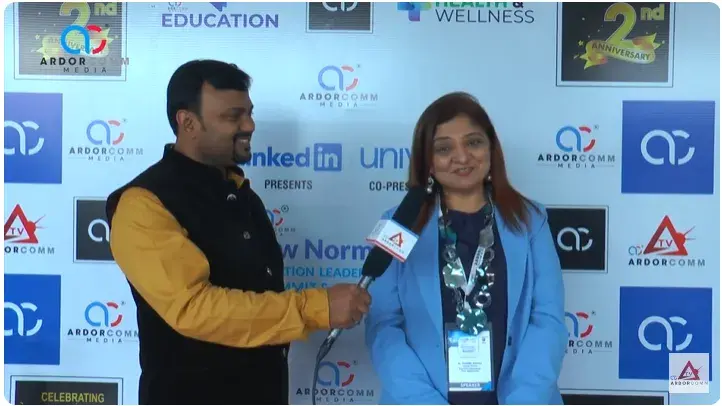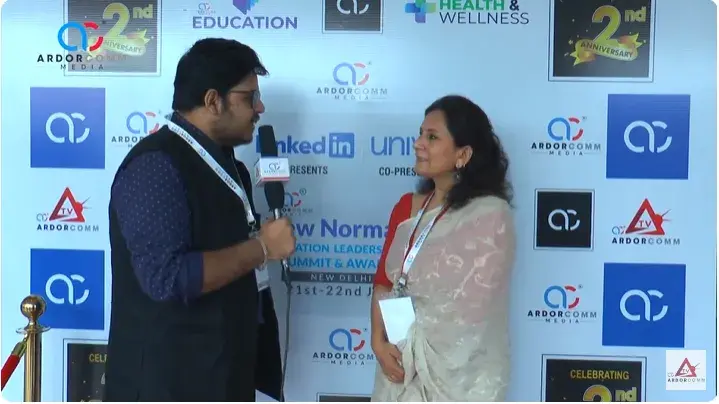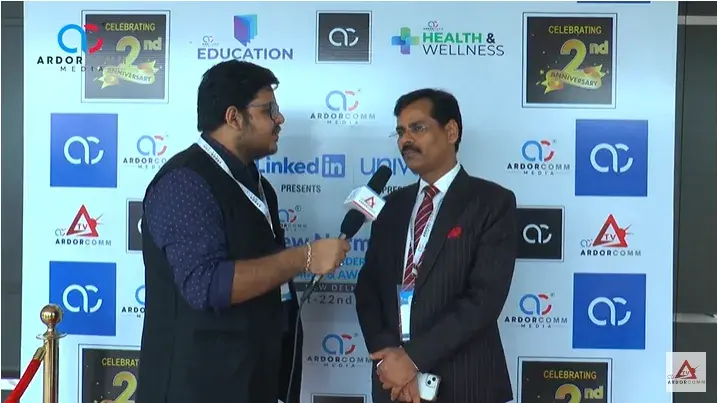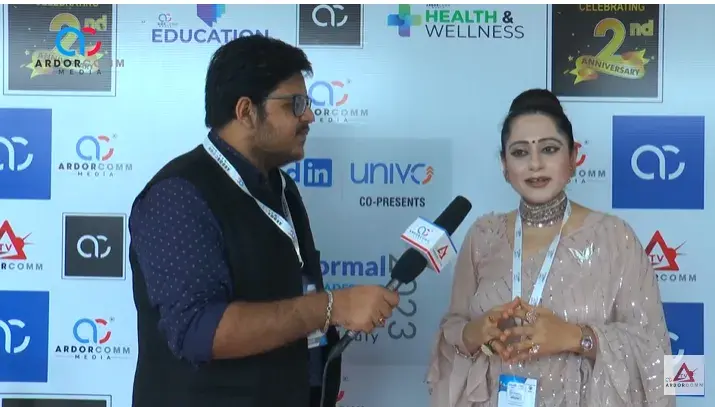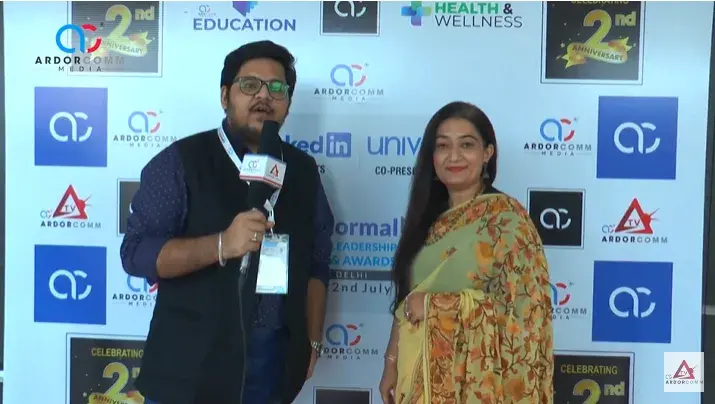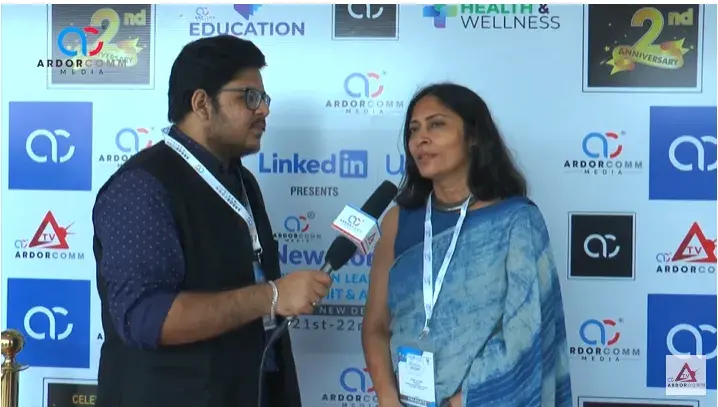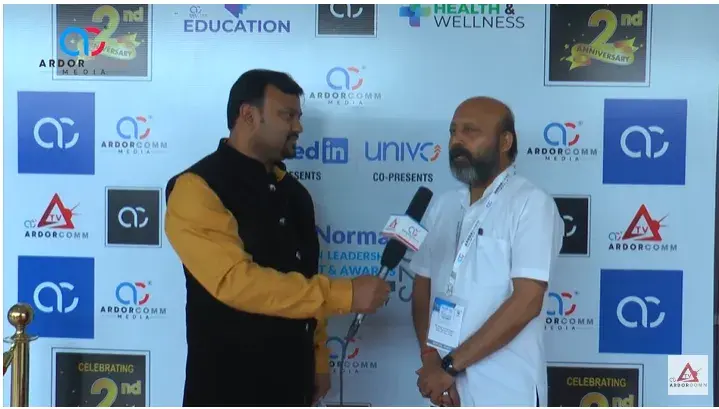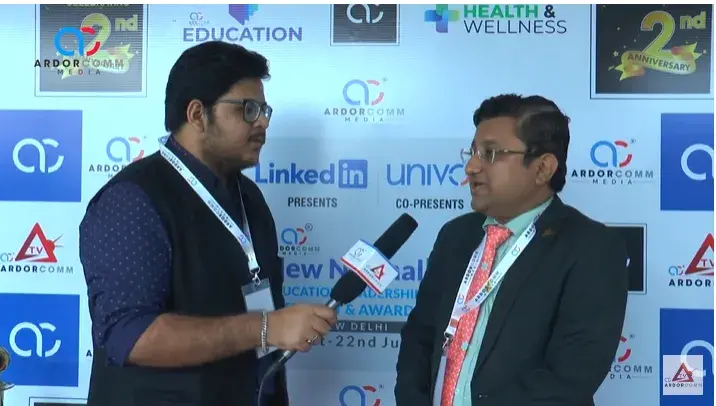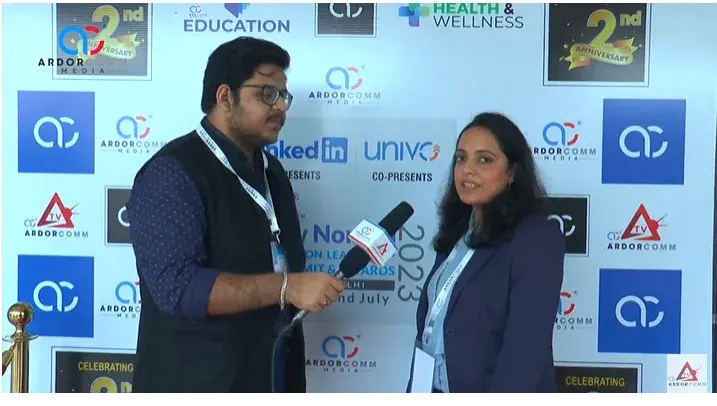Dr. Harshita Sharma, Founder Director, Brainstorm International, Pune, shares her views on aligning SDGs in Pre-School Education
“In the early years, I think if we align sustainability goals, in simple steps, we don’t have to have a very heavy curriculum,” says Dr. Harshita Sharma, Founder Director, Brainstorm International, Pune, in an interview with Chandan Anand, CEO & Group Editor, ArdorComm Media Group at the ‘New Normal – Education Leadership Summit & Awards 2023’ #ELSANewDelhi #ELSAGurugram How are you feeling to witness this summit? First of all, congratulations to you for a wonderful, amazing, and very insightful event. ArdorComm is doing a wonderful job connecting so many educators. I think this was a very different experience because I have never seen people from the NCERT team staying and talking, sharing their insights the way they have given the inputs. Everybody was in the room, and nobody walked out, and that shows what kind of speakers you had since morning. Amazing panel and warm hospitality. So, congratulations to you. What were the learnings and takeaways from the topics on which the discussion happened? I think you have touched on the core topics, beginning with technology being so transformative and what are the new things transforming in technology. Moving on to the foundation stage, early years, and how we can align with the sustainable goals. What we can do at the ground level, and what are all the stakeholders doing, their best practices and insights. This was just amazing. Moving forward to the K-12 schools, it’s all about how the new education policy (NEP) and National Curriculum Framework (NCF) are being implemented. The best practices shared by schools were amazing. I really liked that slogan “Issue of a tissue,” which was something very interesting. They were saying that a small spark in a child can lead the discussion to a completely new revolution of sustainability and making the planet the safest planet. What is the message for the people who are entering the preschool section and what will be the sustainability advice for them? In the early years, I think if we align sustainability goals, in simple steps, we don’t have to have a very heavy curriculum. With the new NEP, you have the first five years based on play, themes, stories, and experiential learning. If we can combine that along with the Panchakoshas (five layers of development) in a simple way, engaging the community together so that all our pillars and stakeholders are aligned, it becomes easier to implement. We also need to ensure that parents are aligned with our vision and mission. Make them the most important stakeholders who should be aligned with your vision, which is crucial. Any message for ArdorComm Media Group on its 2nd anniversary? As a human being, I think I relate to you more than anything else. The kind of passion you have for the entire organization that brings us here from all the way from Pune, and I think the event and the content, both the combination when it comes together, it becomes worth coming all the way from wherever all the educators are coming from. Congratulations to you and thank you for connecting such wonderful people. It’s not easy, and you all are doing an amazing job. Congratulations once again and keep up the good work.

